Baby Feeding Essentials: Nourishing Your Little One With Care
A new family member carries with it a great deal of duty as well as delight. Among the many responsibilities, making sure your infant is properly fed is crucial. For the sake of your child’s health and well-being, as a parent, you must know the basics of equipment and feeding methods. For every parent to confidently traverse the journey of parenthood, we will examine the essentials of baby feeding in this essay.
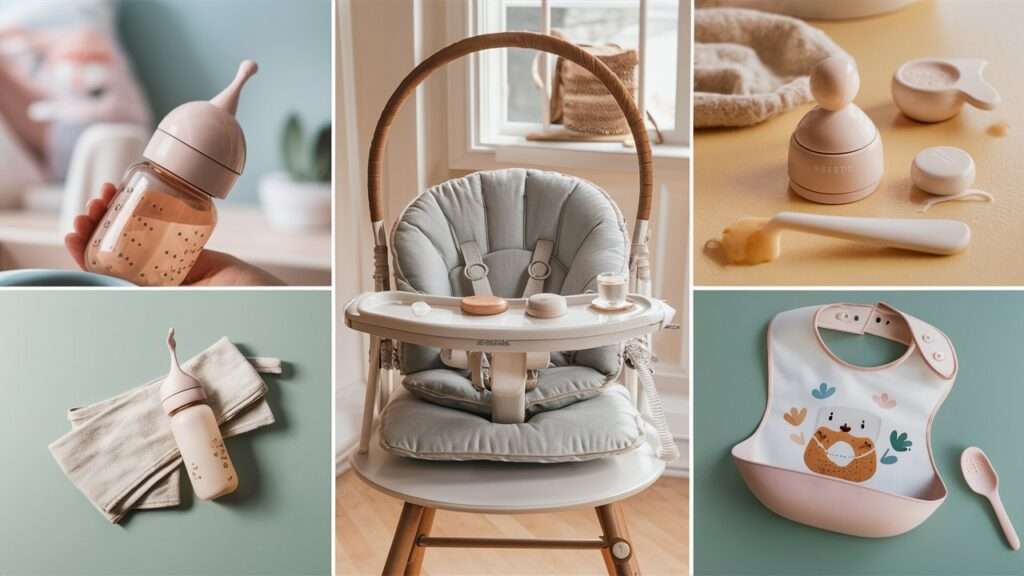
Table of Contents
Importance of Choosing the Right Baby Feeding Essentials
Choosing the right feeding basics for your infant has a direct impact on their development and health; it is not just a convenient decision. A comfortable feeding experience and enough nourishment are just two of the many ways that having the correct tools can improve your baby’s journey.
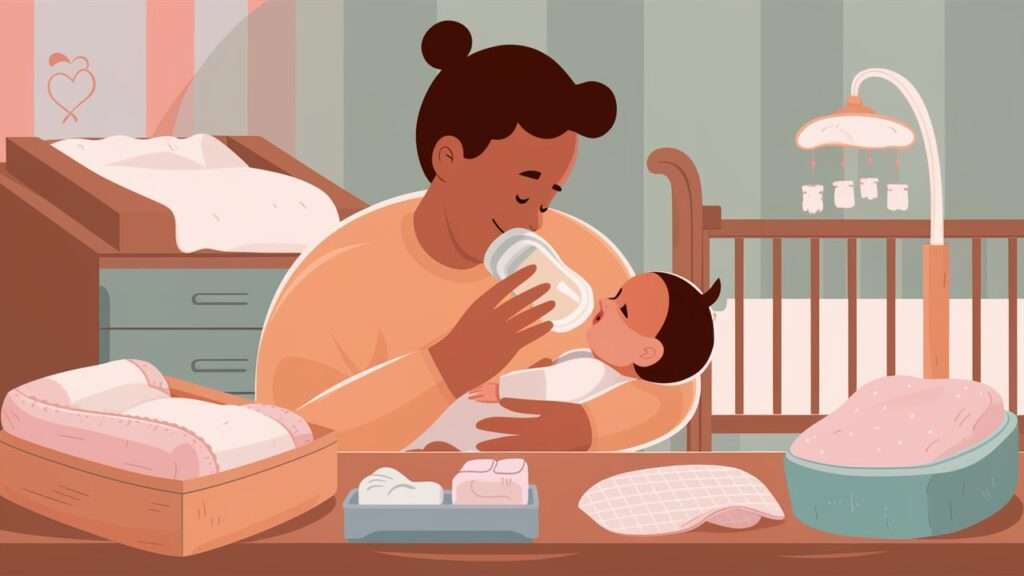
Essential Baby Feeding Items Every Parent Needs
Feeding Bottles
Feeding bottles are indispensable for both breast-fed and formula-fed babies. Opt for BPA-free bottles that are easy to clean and sterilize.
Bottle Sterilizer
Maintaining hygiene is paramount when it comes to feeding your baby. Invest in a quality bottle sterilizer to eliminate harmful bacteria and ensure your baby’s safety.
Breast Pump
For breastfeeding mothers, a breast pump is a valuable tool for expressing milk and maintaining milk supply, especially for working moms or those who need to be away from their babies for extended periods.
Baby Formula
If you’re unable to breastfeed or choose not to, having a reliable baby formula on hand is essential. Ensure it meets your baby’s nutritional needs and is suitable for their age.
Burp Cloths
Spills and spit-ups are inevitable during feeding times. Keep a stash of soft, absorbent burp cloths handy to keep your baby clean and comfortable.
High Chair
As your baby grows, a sturdy high chair becomes indispensable for safe and comfortable mealtimes. Look for one with adjustable features to accommodate your growing child.
Baby Spoons and Bowls
Introducing solids is an exciting milestone in your baby’s development. Invest in soft-tip spoons and baby-friendly bowls to make mealtime enjoyable for your little one.
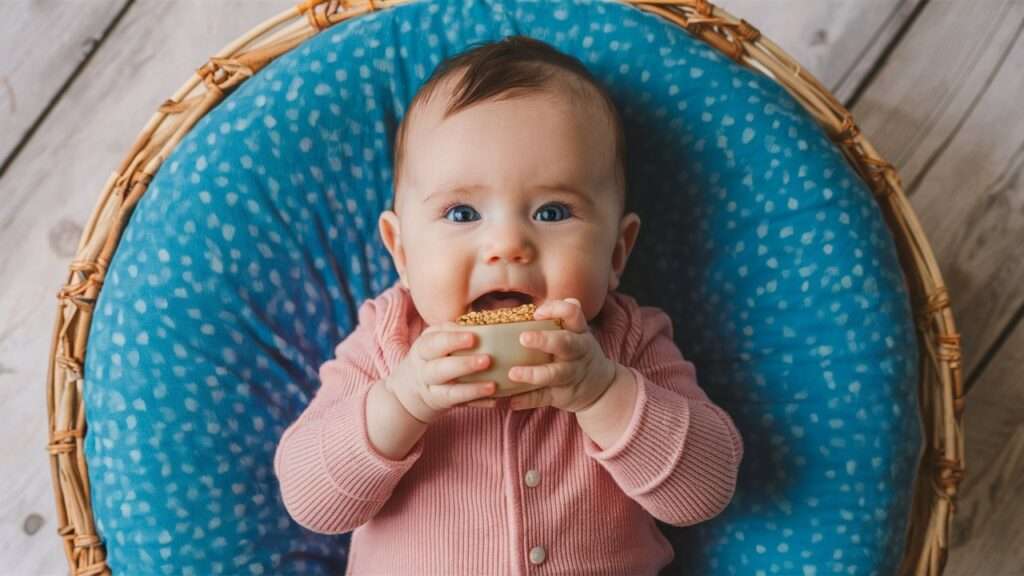
Factors to Consider When Choosing Baby Feeding Essentials
When selecting feeding essentials for your baby, several factors warrant consideration:
Material and Safety
Ensure that all feeding items are made from safe, non-toxic materials that won’t leach harmful chemicals into your baby’s food.
Ease of Cleaning
With the constant cycle of feeding and cleaning, opt for items that are easy to disassemble and clean thoroughly to maintain hygiene.
Cost and Budget
While quality is essential, consider your budget when purchasing feeding essentials. Look for options that offer the best value without compromising safety or functionality.
Versatility
Choose feeding items that can adapt to your baby’s changing needs, such as bottles that can transition from breast-to-bottle feeding or high chairs that grow with your child.
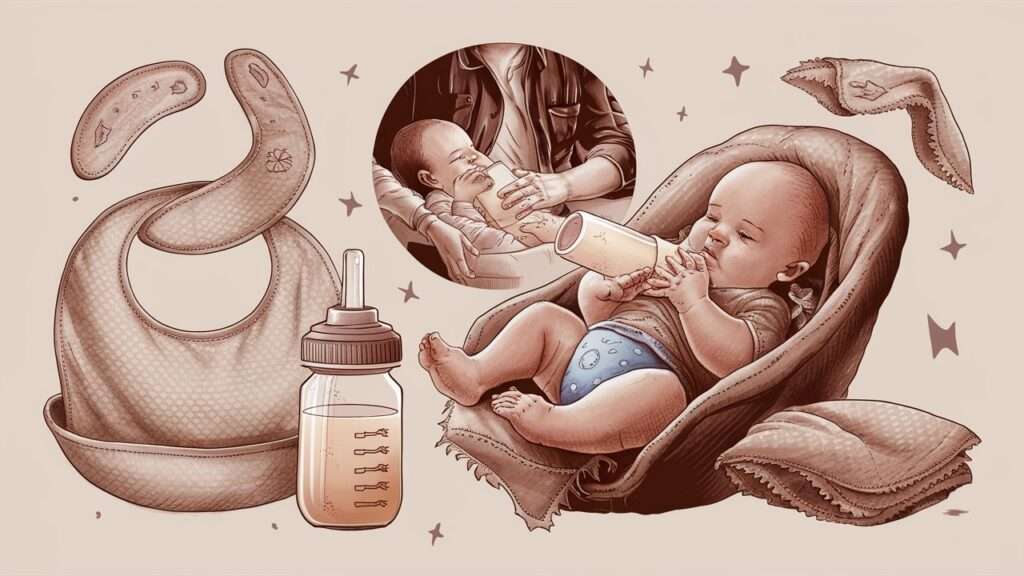
Tips for Successful Baby Feeding
Establishing a Feeding Schedule
Maintaining a consistent feeding schedule helps regulate your baby’s appetite and promotes healthy growth and development.
Ensuring Proper Latching (for breastfeeding)
For breastfeeding mothers, ensuring a proper latch is crucial for effective milk transfer and preventing discomfort or nipple soreness.
Introducing Solids Safely
When introducing solid foods, start with single-ingredient purees and gradually introduce new foods while monitoring for any signs of allergies or intolerance.
Being Patient and Persistent
Feeding your baby can be challenging at times, but patience and persistence are key. Stay calm and responsive to your baby’s cues, and remember that every feeding experience is a learning opportunity.
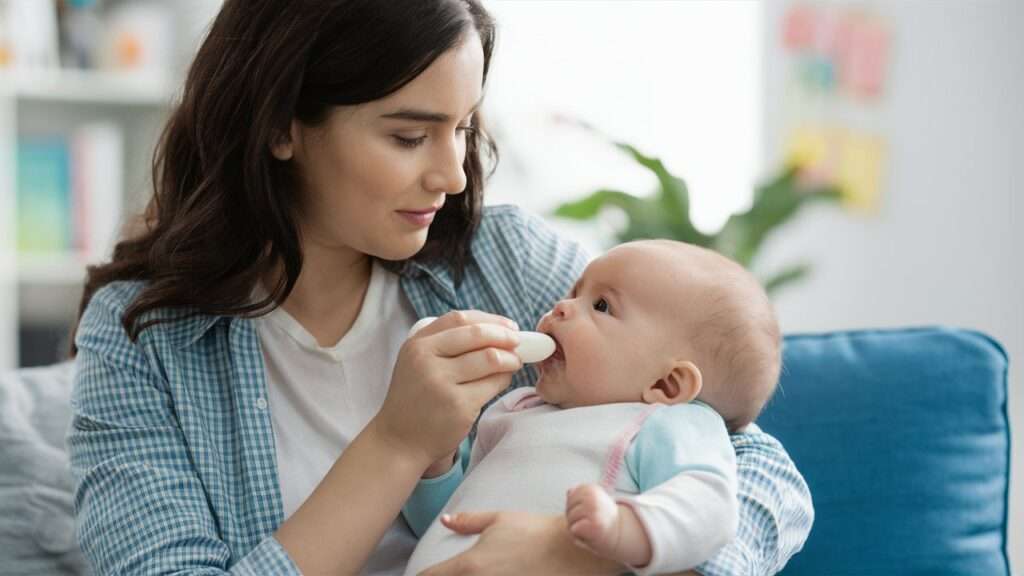
Common Mistakes to Avoid When Feeding Your Baby
Ignoring Safety Guidelines
Always follow safety guidelines when using feeding essentials to prevent accidents or injuries.
Overfeeding or Underfeeding
Pay attention to your baby’s hunger cues and avoid overfeeding or underfeeding, which can lead to digestive issues or weight concerns.
Neglecting to Burp Your Baby
Failing to burp your baby after feedings can result in discomfort and colic. Take the time to burp your baby regularly to release trapped air and prevent gas.
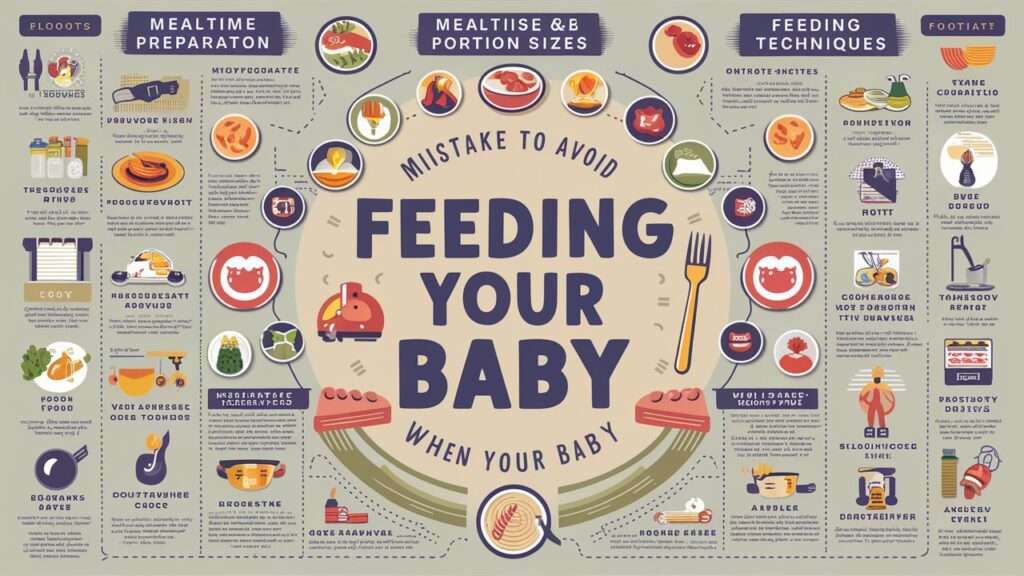
Transitioning from Breastfeeding to Bottle Feeding
Gradual Transition
If transitioning from breastfeeding to bottle feeding, introduce the bottle gradually to allow your baby to adjust at their own pace.
Choosing the Right Formula
Selecting the right formula for your baby’s needs is essential. Consult with your pediatrician to find the best option for your little one.
Maintaining Bonding During Bottle Feeds
Use bottle-feeding as an opportunity to bond with your baby through eye contact, cuddling, and soothing words.
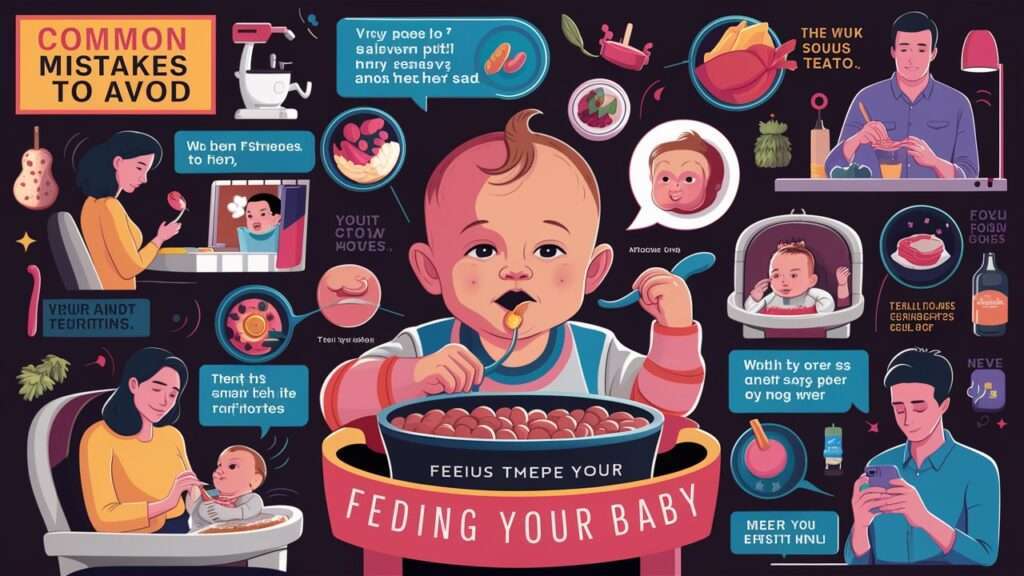
Introducing Solids: A Milestone in Baby Feeding
Signs of Readiness
Look for signs of readiness, such as sitting up unassisted and showing interest in food, before introducing solids.
Choosing the Right Foods
Offer a variety of nutrient-rich foods, including fruits, vegetables, grains, and protein, to support your baby’s growth and development.
Introducing Allergenic Foods
Introduce allergenic foods one at a time and monitor for any adverse reactions, such as rash or swelling.
Baby-Led Weaning vs. Traditional Spoon-Feeding
Explore different feeding approaches, such as baby-led weaning or traditional spoon-feeding, to find what works best for your baby’s preferences and developmental stage.
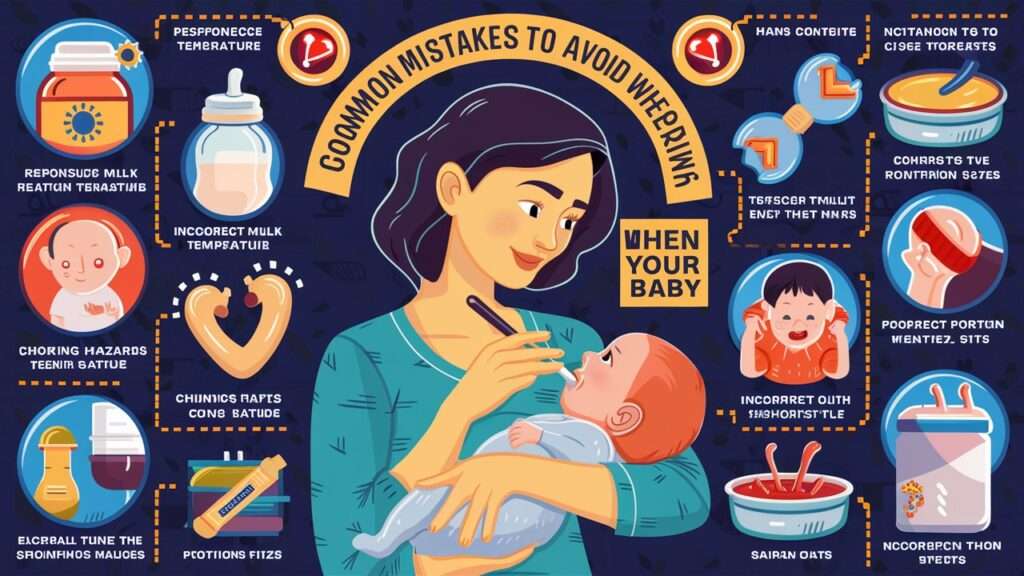
Essential Accessories for Mess-Free Feeding
Bibs
Keep your baby’s clothes clean during mealtimes with waterproof bibs that catch spills and drool.
Splat Mats
Protect your floors from messes with easy-to-clean splat mats placed under your baby’s high chair.
High Chair Tray Covers
Invest in high-chair tray covers that are dishwasher-safe for hassle-free cleanup after meals.
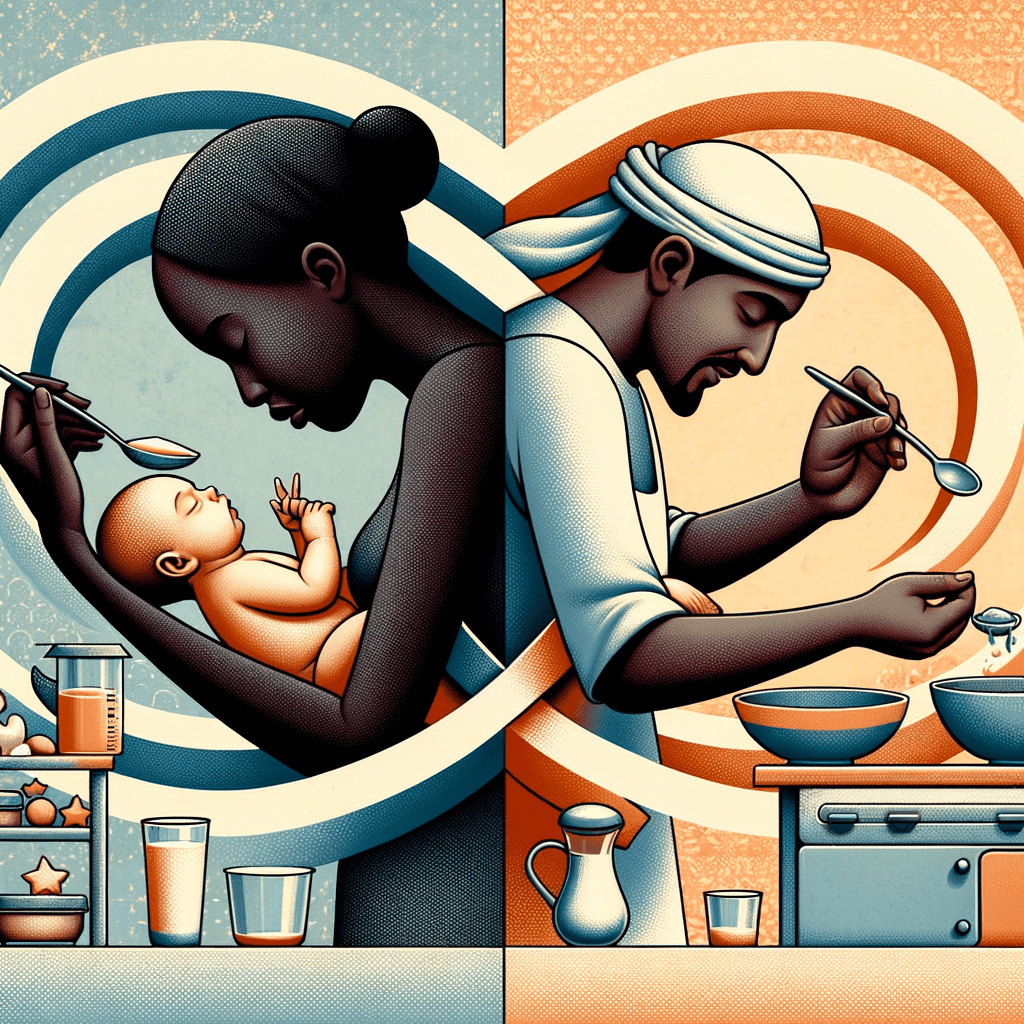
The Role of Patience and Consistency in Baby Feeding
Patience and consistency are essential virtues when it comes to feeding your baby. Embrace the journey with an open heart and a willingness to adapt to your baby’s changing needs.
Conclusion
Navigating the world of baby feeding can be both exciting and daunting for new parents. By understanding the essential feeding items, considering important factors, and implementing best practices, you can ensure a nourishing and enjoyable feeding experience for you and your little one.
5 Unique FAQs
- Q: How often should I feed my baby?
- A: Newborns typically feed every 2-3 hours, but frequency may vary based on your baby’s age and individual needs. Follow your baby’s cues for hunger and fullness.
- Q: Can I mix breast milk and formula in the same bottle?
- A: It’s generally not recommended to mix breast milk and formula in the same bottle due to differences in composition and digestion. Offer them separately if needed.
- Q: When should I introduce solids to my baby?
- A: Most babies are ready to start solids around 6 months of age. Look for signs of readiness and consult with your pediatrician for personalized guidance.
- Q: How do I know if my baby is allergic to a certain food?
- A: Watch for signs of food allergies, such as rash, vomiting, or difficulty breathing, after introducing new foods. If you suspect an allergy, consult with your pediatrician.
- Q: Do I need to sterilize feeding bottles after every use?
- A: While sterilizing bottles after every use is not necessary, it’s recommended to do so regularly, especially for newborns, to ensure proper hygiene.
Share this content:
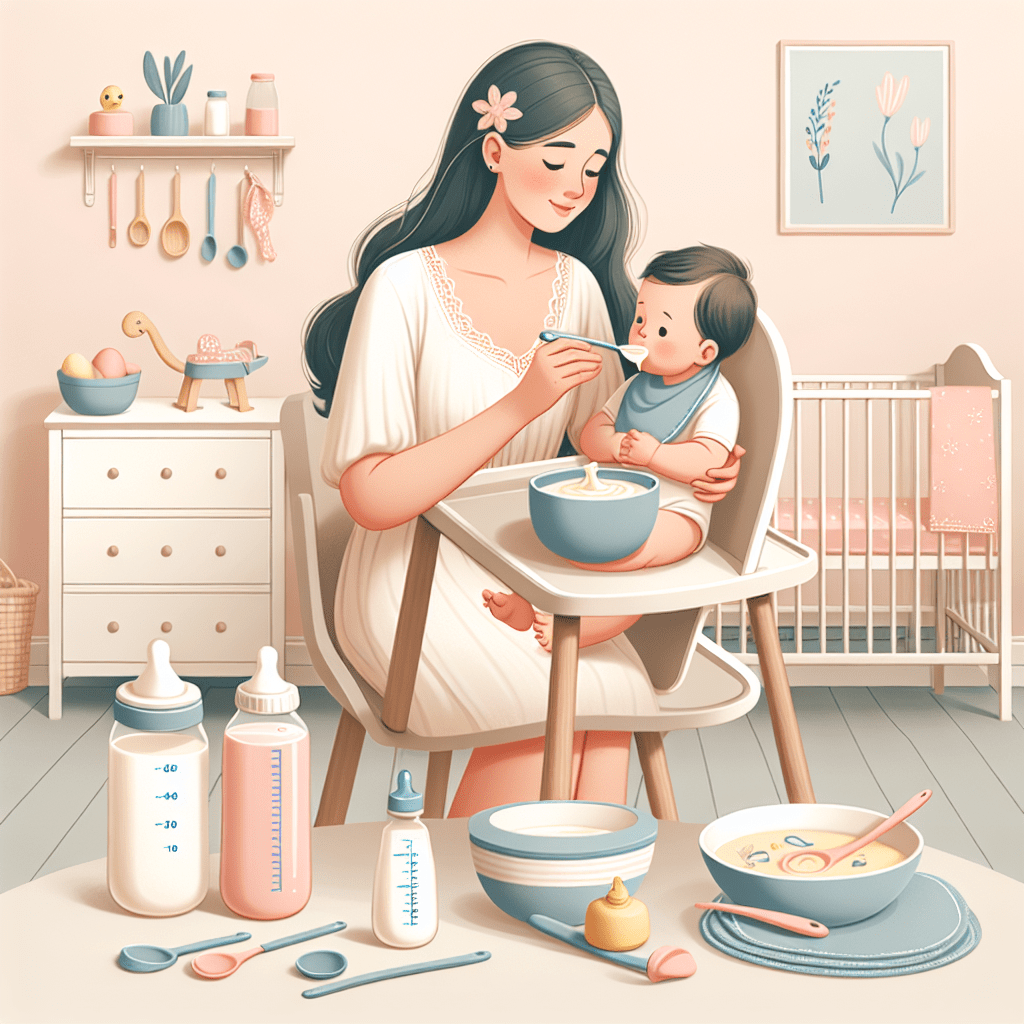
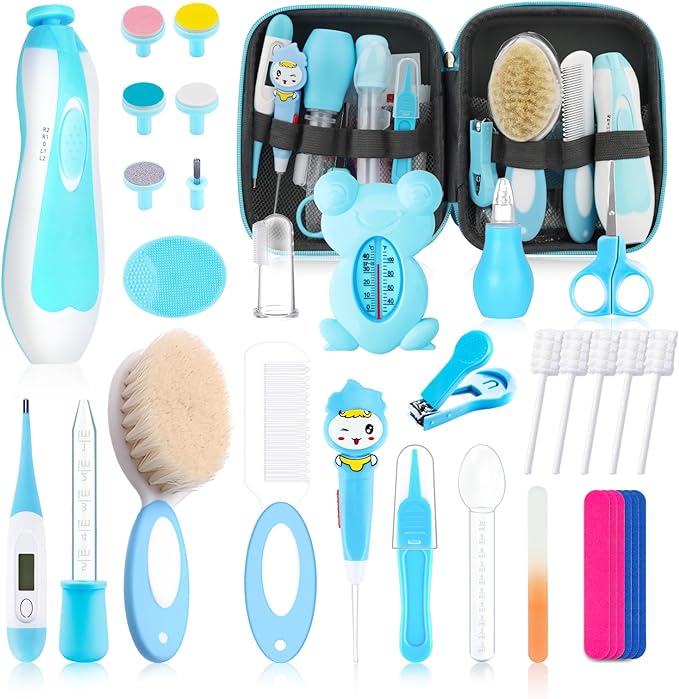
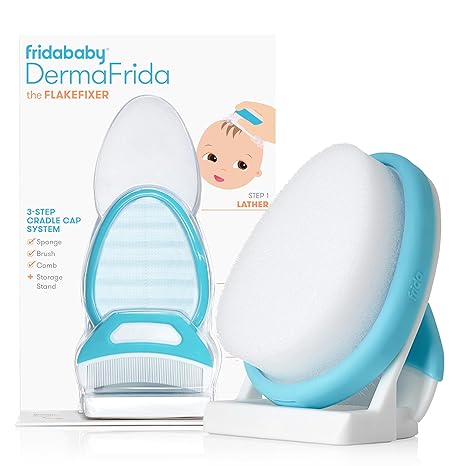
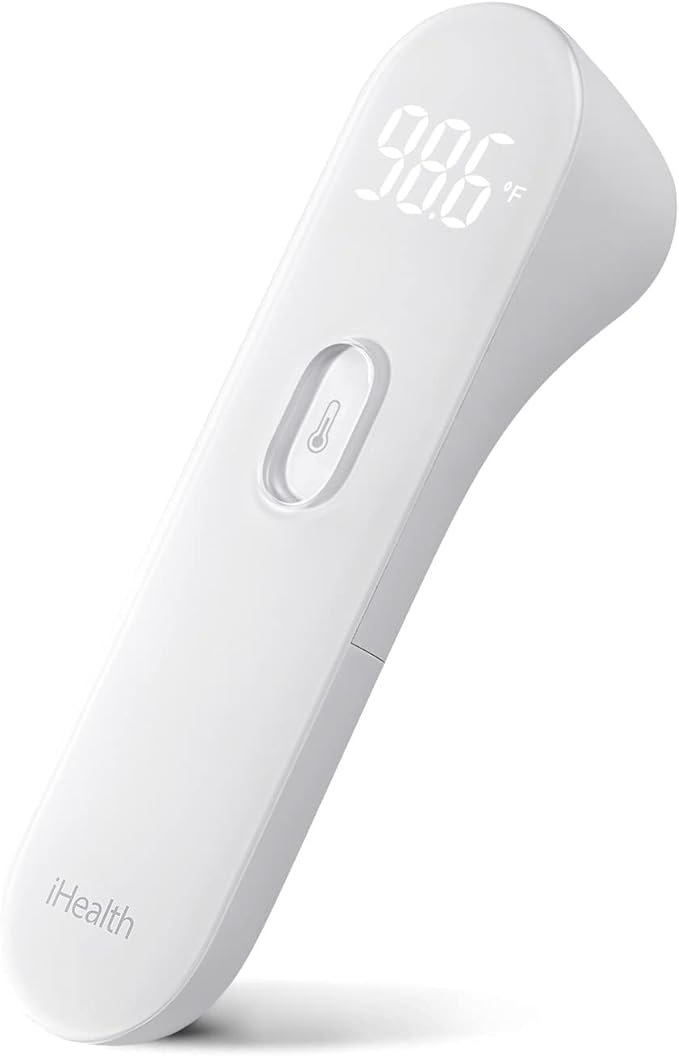
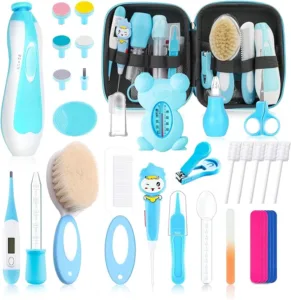
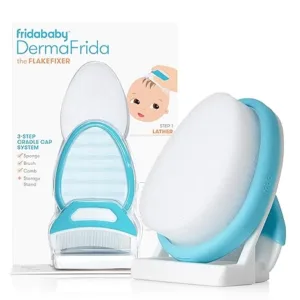
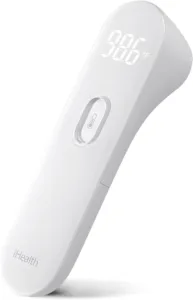
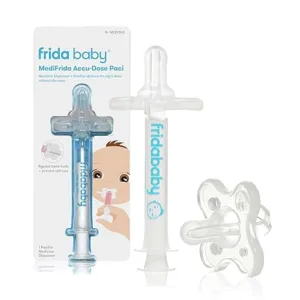
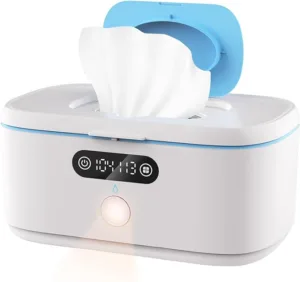
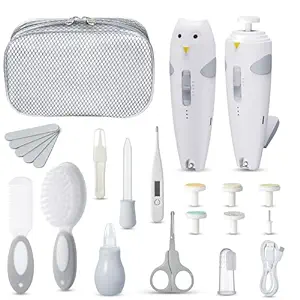
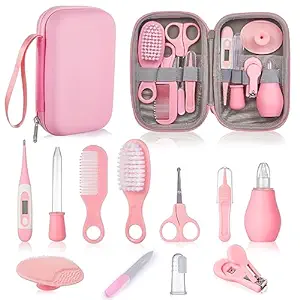
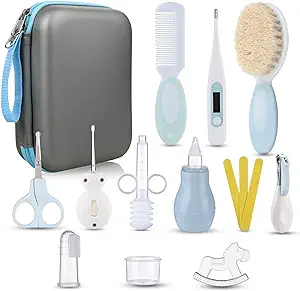

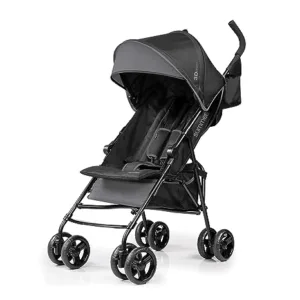
Post Comment